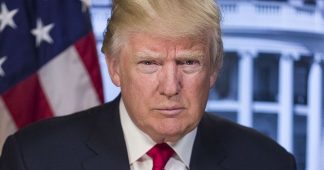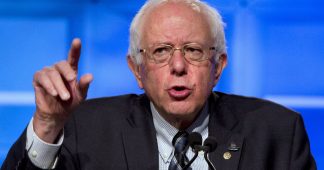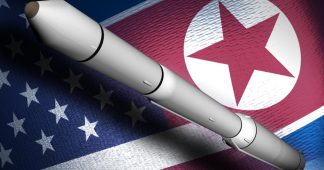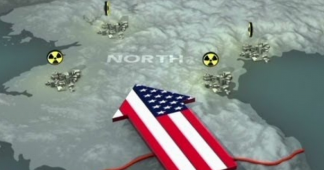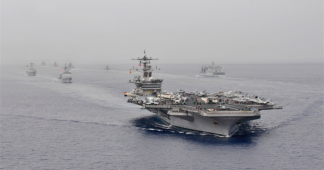MacArthur witnessed ‘fire and fury’-style fight in Korea, and it sickened him
By ANDREW DEGRANDPRE
The Washington Post
WASHINGTON — Having just been fired as commander of allied forces in Korea, a defiant Douglas MacArthur appeared before Congress and spoke of human suffering so horrifying that his parting glimpse of it caused him to vomit.
“I have never seen such devastation,” the general told members of the Senate Armed Services and Foreign Relations committees. At that time, in May 1951, the Korean War was less than a year old. Casualties, he estimated, were already north of 1 million.
“I have seen, I guess, as much blood and disaster as any living man,” he added, “and it just curdled my stomach.”
It was a remarkable statement. At that time, the general was not yet six years removed from having presided over the atomic bomb strikes that compelled Japan’s surrender in World War II.
MacArthur’s testimony recirculated this week after President Donald Trump, incensed by revelations about North Korea’s nuclear weapons program, declared that the United States would respond with “fire and fury” unless the regime in Pyongyang ceases its threatening behavior.
His pronouncement was widely criticized as unwise and provocative, and it appears he was quickly reminded of the consensus among experts, inside and outside of the administration, that to address North Korea’s aggression militarily would result in profound loss of life.
A day later, the commander in chief offered this on Twitter: “My first order as President was to renovate and modernize our nuclear arsenal. It is now far stronger and more powerful than ever before …”
Several minutes later, Trump added: “Hopefully we will never have to use this power, but there will never be a time that we are not the most powerful nation in the world!”
On Thursday, Trump escalated the rhetoric once more, saying that if North Korea attacks, “things will happen to them like they never thought possible.”
Though spoken 66 years ago, MacArthur’s remarks to Congress are instructive even now.
They speak to the challenge of bringing about a peaceful resolution to a standoff that escalated dramatically, causing global alarm.
Bear in mind that when MacArthur said this, it would be another 18 months before scientists tested the first hydrogen bomb, capable of generating a nuclear blast far outmatching that which brought destruction upon Hiroshima and Nagasaki.
MacArthur had been fired by President Harry S. Truman for repeatedly — and publicly — disputing Truman’s cautious approach to the Korean campaign. Rather, MacArthur favored the rapid deployment of overwhelming firepower and even called for striking targets inside China, confident his approach would bring an end to the bloodshed.
Lawmakers were stunned by and suspicious of Truman’s motivation for sacking the general, and they wanted answers.
Sen. Brien McMahon, a Connecticut Democrat, was especially focused on the prospective use of atomic weapons and whether MacArthur believe such drastic measures were necessary.
No, MacArthur said.
Here is their exchange:
McMahon: Have you at any time advocated the use of the atomic bomb in your theater?
MacArthur: Of the atomic bomb?
McMahon: Yes.
MacArthur: The limit of what I did was to ask for information as to whether there were any plans to use the atomic bomb in the Far East.
McMahon: Did you recommend its use?
MacArthur: I did not. As I understand it, the use of the atomic bomb has, by fiat and order, been limited to the decision of the president of the United States.
MacArthur then broke off in a gripping account of suffering already on display there.
“I shrink with a horror that I cannot express in words, at this continuous slaughter of men in Korea. The battle casualties in Korea today probably have passed the million-man mark: Our own casualties, American casualties, have passed 65,000. The Koreans have lost about 140,000. Our losses, on our side, are a quarter of a million men.
“I am not talking of the civilian populations who must have lost many, many, many times that. The enemy probably has lost 750,000 casualties. There are 145,000 of them that are now in our prison bullpens, prisoners, so they might be excepted from that figure because they live; but a million men in less than 11 months of fighting, in less than 11 months of this conflict, have already gone, and it grows more savage every day.
“I just cannot brush that off as a Korean skirmish. I believe that is something of such tremendous importance that it must be solved, and it cannot be solved by the nebulous process of saying ‘give us time, and we will be prepared; or we will be in better shape two years from now,’ which is argumentative. I don’t know whether we will or not; and neither do you. …
“But I say there is no chance in Korea, because it is a fact – you have lost a million men now. You will lose more than a million if you go on another year; if you go on until 1953, you will lose another million. What are you trying to protect? The war in Korea has already almost destroyed the nation of 20,000,000 people.”
The Korean War ended more than two years later. An estimated 2.9 million people were left dead, wounded or missing.
But the debate over whether to employ atomic weapons proved more agonizing than MacArthur’s testimony let on.
As Nathan A. Jennings wrote for Small Wars Journal, Truman outwardly opposed use of the weapons but nonetheless had them positioned nearby after firing MacArthur.
Truman’s successor in the White House, Dwight D. Eisenhower, indicated before taking office that the nation’s growing nuclear arsenal gave it an unrivaled advantage and should be employed for strategic gain against purely military targets. After his election win, the retired Army general huddled with MacArthur, who advised an aggressive strategy was necessary in Korea, including the use of atomic bombs.
It seemed inevitable.
“One possibility,” Eisenhower wrote in his memoirs, “was to let the Communist authorities understand that, in the absence of satisfactory progress, we intend to move decisively without inhibition in our use of weapons, and would no longer be responsible for confining hostilities to the Korean peninsula. We would not be limited by any world-wide gentleman’s agreement.”
It never proved necessary, though. The threat alone was enough to bring about the war’s end.
